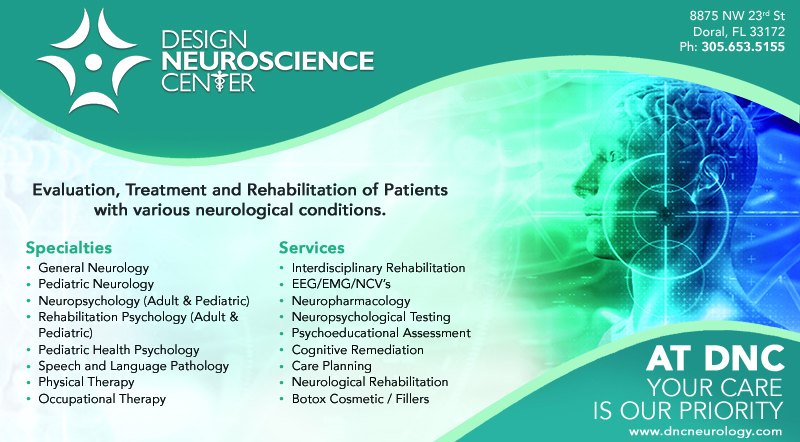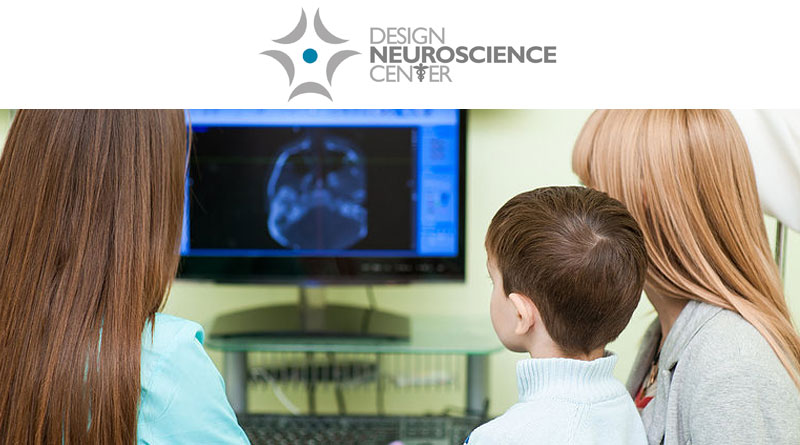What is Pediatric Neuropsychology?
Written by: Cristina C. Santiago, Psy.D.
Pediatric Neuropsychology/Rehabilitation
Pediatric Behavioral Medicine
Licensed Clinical Psychologist
DORAL, FL – Other than being a mouth full to pronounce, whenever a parent receives a referral for their child to be evaluated by a pediatric neuropsychologist they may be left wondering who, why and how; that is, after they finally practice its pronunciation for a while.
For all of you that feel lost with these questions, bellow is basic explanations that may help orient you about its purpose and importance.
Who?
Pediatric neuropsychologists are professionals trained to evaluate the relationship of a child’s brain and its role in learning, communication, memory, motor functioning, planning, organization, and behavior. They are psychologists specifically trained to assess different areas of brain functioning, interpret the results and provide recommendations for home, school, and community.
 Why?
Why?
As a result of a comprehensive evaluation, neuropsychologists may be able to identify functional deficits resulting from a traumatic brain injury or assist in the identification of cognitive strengths and weaknesses that may be insightful for medical teams, parents, and teachers.
Some of the common reasons children are referred for neuropsychological evaluation include difficulty learning, developmental delays, medical/neurological disorders affecting the brain (i.e., traumatic brain injury, seizures, chronic illnesses, etc.) or difficulty paying attention.
Information obtained from a neuropsychological evaluation will help you and the child’s teachers, therapists and physicians tailor treatment and interventions to the child’s unique needs.
Additionally, they will provide an array of information that will help caretakers teach strategies due to deficits in brain functioning such as help complete assignments; improve learning; effective ways to cue/direct them when stuck; manage problem behaviors; adapt aids for memory, communication or organization; and recommend alternative methods of evaluation (i.e., extended time on tests, multiple-choice vs. essay answer at school).
Academic and environmental accommodations are pivotal in assisting children to function optimally given their unique set of cognitive strengths and weaknesses outlined through neuropsychological testing.
How?
Neuropsychologists use a variety of standardized tests that provide information about different parts of the child’s brain function when challenged to reason, analyze, store and recall information.
A neuropsychological evaluation typically evaluates all of the following areas: intellectual functioning, academic achievement, language, memory and learning, visual-spatial skills, attention/concentration, motor coordination, executive functioning and behavior/emotional functioning.
While the school system usually assesses to determine if a child qualifies for a special education placement or school therapy, they do not generally diagnose learning or disorders caused by altered brain function or development.
Typically, neuropsychological evaluation consists of an initial evaluation to gather background information and assist in decision making for subsequent testing sessions, a couple of 4-6 hour testing sessions and a feedback session where the neuropsychologist discusses the results of the evaluation and treatment recommendations as warranted.
It is important to note that neuropsychological testing consists generally of paper and pencil tests, there is no poking or pain sustained during evaluations.
Please make sure to discuss with your child’s medical professional or school if you think they would benefit from a neuropsychological evaluation for appropriate referral and guidance. Additionally, it is important to choose a neuropsychologist who has plenty of experience working with other children who share similar difficulties/injuries to your own child.
For more information, call at 305.653.5155. Design Neuroscience Center is located in 8875 NW 23rd Street, Doral. https://www.dncneurology.com
-Information contained in this article is for educational purposes and should not substitute or supersede your medical professional’s advice.
Sources:
Lash, M., & Savage, R. (2006). Neuropsychology and school: Understanding how a
brain affects a student’s behavior. Wake Forest, NC: Lash & Associates Publishing/Training Inc.
American Psychological Association Division 40 (2001). Pediatric neuropsychology: A
guide for parents. APA Editorial and Design Services.


